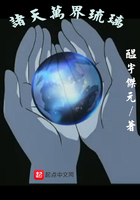I never noticed before that there were silver hairs about his temples. He stayed in his room, and had his meals sent to him. He came out only to ride, and then at night. Waking the third morning at daybreak, I saw him through the window galloping past, and I knew he had spent the night on Black Mountain. I went to his room as soon as I got up, and Grayson was lying across his bed with his face down, his clothes on, and in his right hand was a revolver. I reeled into a chair before I had strength enough to bend over him, and when I did Ifound him asleep. I left him as he was, and I never let him know that I had been to his room; but I got him out on the rock again that night, and I turned our talk again to suicide. I said it was small, mean, cowardly, criminal, contemptible! I was savagely in earnest, and Grayson shivered and said not a word. I thought he was in better mind after that. We got to taking night rides again, and I stayed as closely to him as I could, for times got worse and trouble was upon everybody. Notes fell thicker than snowflakes, and, through the foolish policy of the company, foreclosures had to be made. Grayson went to the wall like the rest of us. I asked him what he had done with the money he had made. He had given away a great deal to poorer kindred; he had paid his dead father's debts; he had played away a good deal, and he had lost the rest. His faith was still imperturbable. He had a dozen rectangles of ``dirt,'' and from these, he said, it would all come back some day. Still, he felt the sudden poverty keenly, but he faced it as he did any other physical fact in life--dauntless. He used to be fond of saying that no one thing could make him miserable. But he would talk with mocking earnestness about some much-dreaded combination; and a favorite phrase of his--which got to have peculiar significance--was ``the cohorts of hell,''
who closed in on him when he was sick and weak, and who fell back when he got well. He had one strange habit, too, from which I got comfort. He would deliberately walk into and defy any temptation that beset him. That was the way he strengthened himself, he said. I knew what his temptation was now, and I thought of this habit when I found him asleep with his revolver, and I got hope from it now, when the dreaded combination (whatever that was) seemed actually to have come.
I could see now that he got worse daily. He stopped his mockeries, his occasional fits of reckless gayety. He stopped poker--resolutely--he couldn't afford to lose now; and, what puzzled me, he stopped drinking. The man simply looked tired, always hopelessly tired;and I could believe him sincere in all his foolish talk about his blessed Nirvana:
which was the peace he craved, which was end enough for him.
Winter broke. May drew near; and one afternoon, when Grayson and I took our walk up through the Gap, he carried along a huge spy-glass of mine, which had belonged to a famous old desperado, who watched his enemies with it from the mountain-tops. We both helped capture him, and I defended him. He was sentenced to hang--the glass was my fee.
We sat down opposite Bee Rock, and for the first time Grayson told me of that last scene with her. He spoke without bitterness, and he told me what she said, word for word, without a breath of blame for her. I do not believe that he judged her at all; she did not know--he always said; she did not KNOW; and then, when I opened my lips, Grayson reached silently for my wrist, and I can feel again the warning crush of his fingers, and I say nothing against her now.
I asked Grayson what his answer was.
``I asked her,'' he said, solemnly, ``if she had ever seen a purple rhododendron.''
I almost laughed, picturing the scene --the girl bewildered by his absurd question--Grayson calm, superbly courteous.
It was a mental peculiarity of his--this irrelevancy--and it was like him to end a matter of life and death in just that way.
``I told her I should send her one.
I am waiting for them to come out,'' he added; and he lay back with his head against a stone and sighted the telescope on a dizzy point, about which buzzards were circling.
``There is just one bush of rhododendron up there,'' he went on. ``I saw it looking down from the Point last spring.
I imagine it must blossom earlier than that across there on Bee Rock, being always in the sun. No, it's not budding yet,'' he added, with his eye to the glass.
``You see that ledge just to the left? Idropped a big rock from the Point square on a rattler who was sunning himself there last spring. I can see a foothold all the way up the cliff. It can be done,''
he concluded, in a tone that made me turn sharply upon him.
``Do you really mean to climb up there?'' I asked, harshly.















